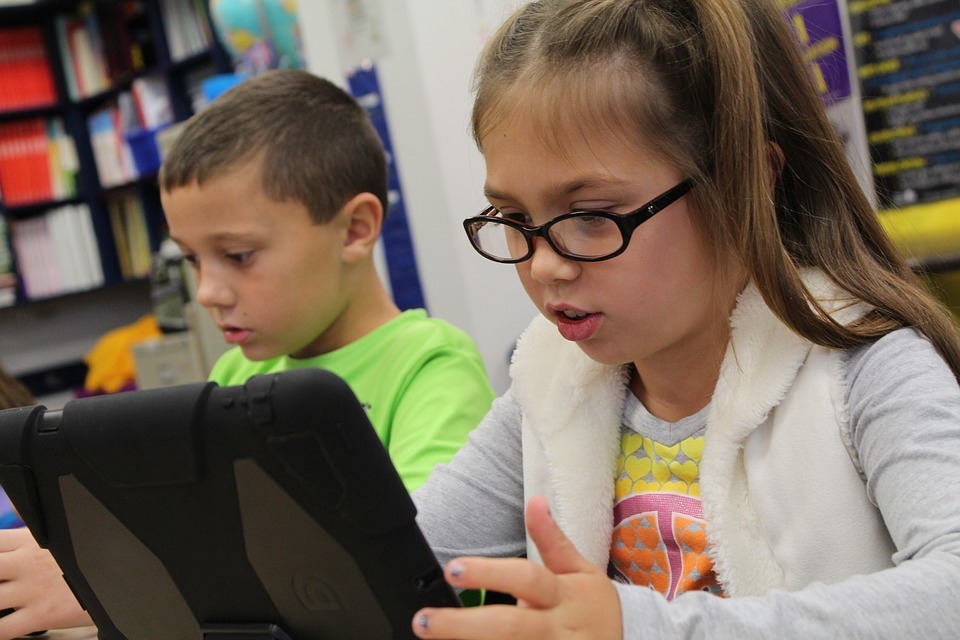Technology can be beneficial to younger students learning core skills, a two-year research project has found, with elementary schools in Northern Ireland found to have improved the numeracy, literacy, and communication skills of their pupils after incorporating iPads into their lessons.
The report "Mobile Devices in Early Learning," published by Stranmillis University College of Belfast, concerns a study assessing the impact mobile devices, such as iPads, have on children's learning of English and mathematics in "the Early Years and Foundation Stage" of education. Five schools in areas of "high social deprivation and academic under-achievement" were provided with iPads from the Belfast Education and Library Board specifically for the study.
According to the report, iPads were provided for use in classes for specific lessons, with teachers also receiving iPads for monitoring and recording pupil progress, with some schools also providing tablets to pupils for use across lessons, to "facilitate personal ownership." In early phases, the study focused on Primary 1 and 2 children, aged 4 to 6 years, with the later phases extending the age range to 8 years old, in Primary 4.
"The introduction of digital technology has had a positive impact on the development of pupil literacy and number skills," said principal investigator Dr Colette Gray. The iPads appear to have done more than improve these areas, with Gray adding "contrary to initial expectations, principals and teachers also reported that their use had enhanced children's communication skills, acting as a stimulus for peer to peer and pupil to teacher discussion."
The study found children's confidence and ownership of the learning process was enhanced by the technology, with improvements noted in children's creativity, technical, social, citizenship, and fine motor skills. Improvements were also found in the staff, with motivation and enthusiasm of teachers said to have been "positively impacted" with the tablets.
Gray warns that the addition of technology to the classroom is not a stand-alone solution, and should complement existing teaching approaches rather than replacing them. "New digital tools offer the potential to enhance traditional approaches to children's learning in an engaging and exciting way - something which was clearly shown in the findings of this study where, for example, boys appear to be more enthused when using digital technology, particularly when producing written work."
Schools have been increasing the use of mobile devices in the education of students for some time, with Apple pushing for the use of iPads and iOS apps as part of their curriculum by providing "starter guides" to educators. Apple has provided other classroom resources for teachers to use, including the Classroom app for remotely managing other iPads in use by students.
Despite the potential for iPads to improve the education prospects of children, one UK politician has criticized its use. Edward Timpson, Minister of State for Vulnerable Children and Families at the Department of Education, called for a reduction of iPad over concerns it is being used as a reason for students to bully one another.
 Malcolm Owen
Malcolm Owen






-m.jpg)






 Andrew Orr
Andrew Orr
 Andrew O'Hara
Andrew O'Hara
 William Gallagher
William Gallagher


 Mike Wuerthele
Mike Wuerthele

 Charles Martin
Charles Martin









2 Comments
iPad have always been great for elementary classrooms. When you start to put them into older students hands, well its a different story. When you get into older students, this is where you need something like a MacBook/MacBook Pro. If I were doing a 1-to-1 with Apple technology I'd look to do something like Pre-K-5 with iPads and then grades 6-12 with Macs.
Utter BS! This would happen with any device. Lets just hold the children's hand for everything and not try and teach them right from wrong and hold them accountable for their actions. You can't stop bullying by taking away everything. Its like hiding the cookie jar because you don't want your child getting into it. They're still gonna find a way to get into it.
I also read an article written by a long time educator, who found that iPads had other benefits (more immersive in the content, not surprising), including not having the screen up at a right angle (traditional laptop screen). The study found that when using laptops (of if iPad was propped up at almost 90' angle) with the screen up, it tended to create a barrier between student and teacher. Allows some students to hide behind it & withdraw somewhat. This was not the case with iPads, where the screen would be at most on a 30' type angle for use by the students.